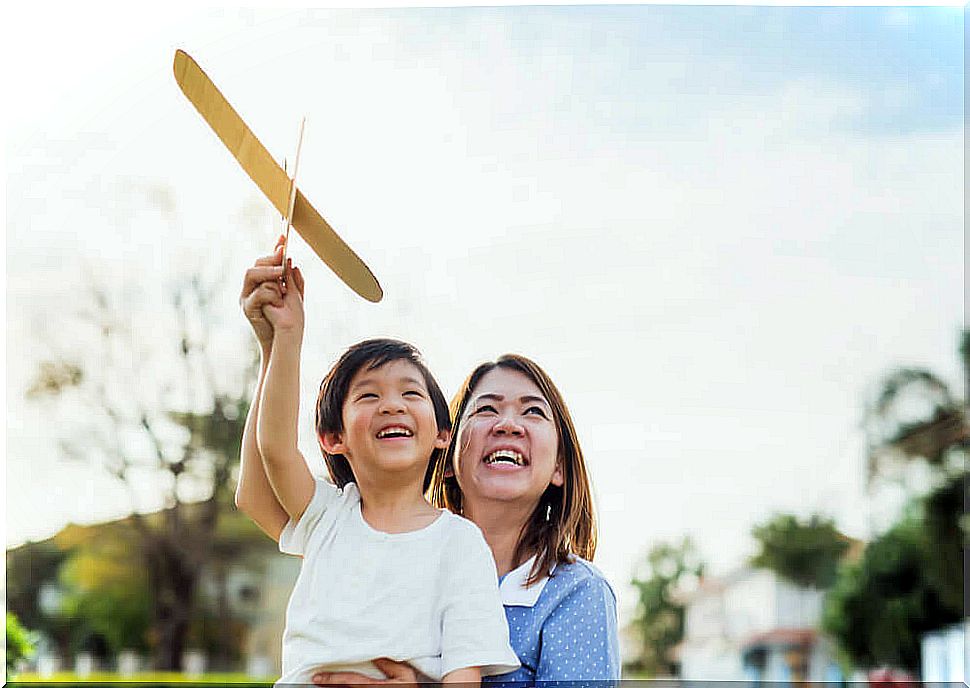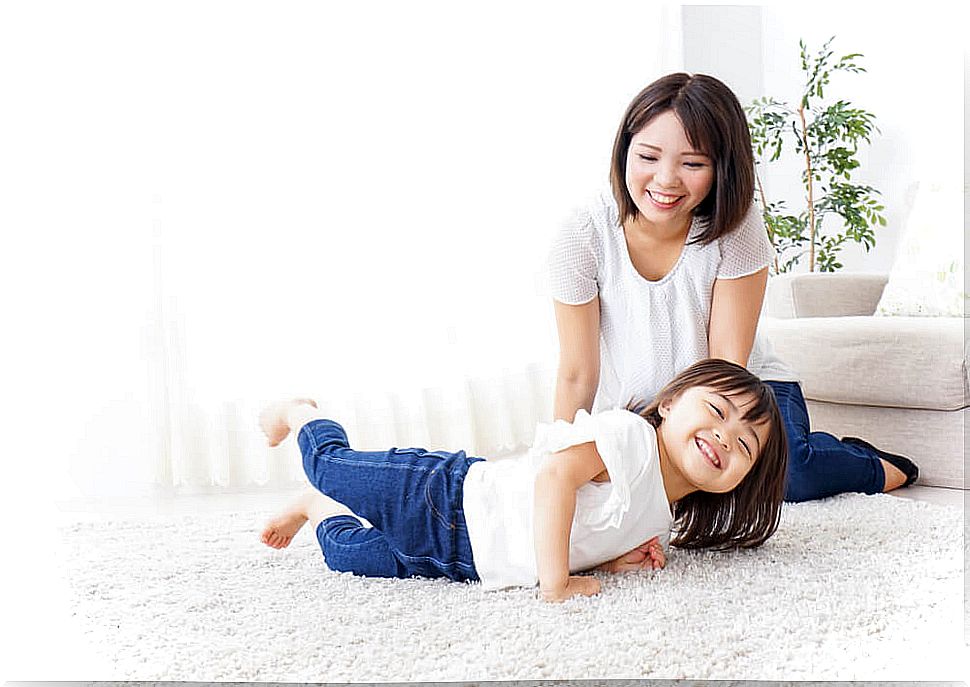Why Do Children In Japan Always Obey Their Parents?
Japanese parents are devoted to the care and education of their children. This style of parenting produces children who are rule-abiding, kind, and well-behaved.

Japan is an admired country. Among other things, children are seen as obeying and behaving well, being kind and considerate, learning and following the rules or adapting their behavior to what is expected of them. This way of being has to do with a parenting method that many revere.
Japanese parents have full confidence that their children will learn appropriate behavior through the example they set, and they feel responsible for their children’s results.
You may be wondering how they do it. Read on to learn the fundamental keys to Japanese parenting, which departs in several respects from the parenting patterns we know in Western cultures.
In Japan, children obey and are role models
As research published by Child Development explains , Japanese families cultivate attachment, empathy, and harmony. In this Asian country, children obey and learn to behave socially like an adult.
However, inside the home, infants are totally dependent on their parents, especially on the mother. Dependency is not discouraged, but on the contrary, it is accepted and encouraged.

Japanese parents reduce the individualistic tendency of the young child to do what he wants through extreme closeness. Tantrums are not on the list of behaviors for Japanese children, although there will always be exceptions.
Attachment in Japan
The parents, but especially the mother, have a very close relationship with the child. Parents promote and reinforce this closeness depend ency. As is the custom in Japan, children are clothed and fed by their parents and co-sleeping until they reach approximately six years of age.
As detailed by Halloway (2010), the historical relationship of the Japanese mother and child is intimate, although this changes over time. It is a unity in which they see themselves as a “shared mind”, rather than two separate and independent people. For the first three years of life, the mother will carry her baby with her all the time and everywhere.
Thus, the woman has an undeniable dedication and devotion to the child. It is difficult for a Japanese child to enter preschool before the age of three or be cared for by their grandparents. After turning three years old, he does start formal schooling.
The Japanese breeding technique
Japanese parents consider that the good behavior of their children is due to the fact that parenting is based on their philosophical beliefs: Confucianism. Japanese upbringing starts from the Confucian ideal of educating children with kindness, since this virtue generates inner peace and joy.

Starting from that initial premise, raising children has some fundamental components that we describe below.
The power of suggestion
To make any correction, the mother in Japan uses persuasion, suggestion, and sometimes shame, thus avoiding direct confrontations with her young children. This minimizes the challenging or aggressive attitudes of the child.
The Japanese mother uses suggestion and request to indicate obligations to infants. Instead of saying, “Pick up the toys!” He will say, “What should you do with the toys now?” Given this, the child will do everything possible to save his responsibility to the mother.
Instead, if the child is unwilling to comply and pretends not to have heard the question or suggestion, the mother can use subtle teasing. Therefore, the child prefers to obey rather than feel ashamed.
The power of gestures
The Japanese child is very involved with his mother, to the point that he is aware of her emotions and gestures, in what state of harmony he is. The child will do everything possible not to break that harmony.
When the mother suggests something, she accompanies her suggestion with an expression on her face that indicates to the child that she would be surprised if she does not act as expected.

The mother does not punish or admonish the child directly. Again, with her face she makes a gesture of tension that indicates to her son that she is disappointed. Since the child is so interested in preserving harmony with the mother, he avoids confrontation and does what is expected of him.
Understanding and love: in Japan, children obey
Japanese mothers have also learned to read their children’s moods. Given this, your persuasion technique will change. If a woman observes that the child does not seem to be in the mood to comply with a request, she will avoid making the request and will save her request for when it is most likely to succeed.
If the child does not want to pick up the toys, the mother will have the most condescending explanations for her refusal. He will say that the child is not ready or has not developed enough to do so, or perhaps he is tired or interested in playing at the moment.
Ultimately, parents in Japan do what it takes to make their children feel loved, valued, and respected. They are objects of the patience, kindness and compassion of their parents.
Without a doubt, this type of parenting is a challenge for Western mothers. Do you dare to try this way of educating that makes children in Japan obey their parents?









